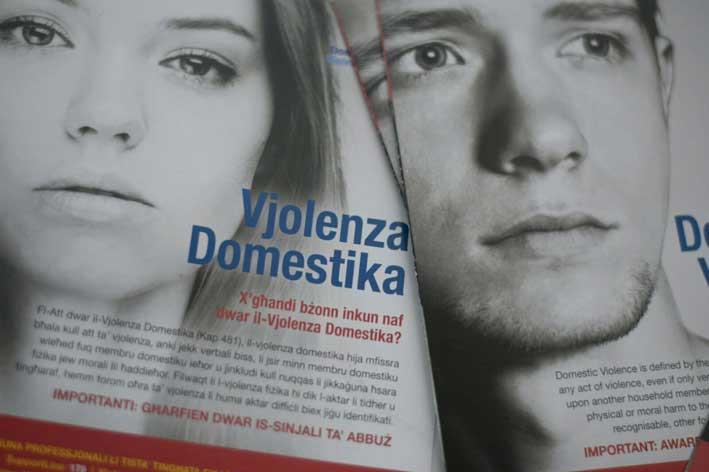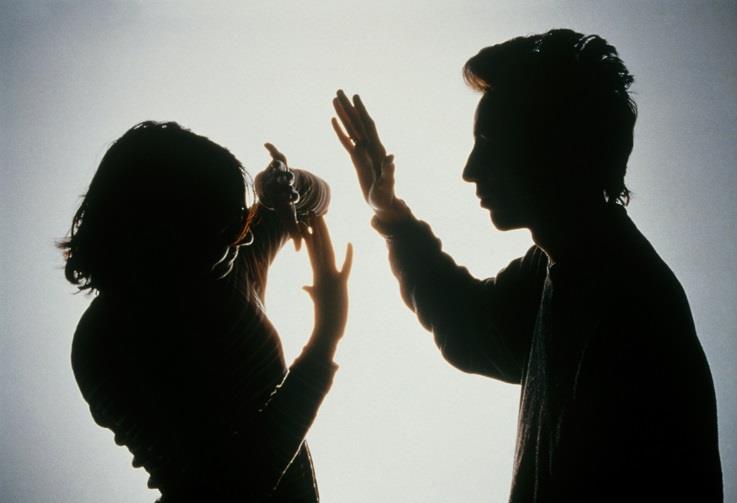One of the realities observed by professionals working with domestic abuse victims is that victims sometimes find it difficult to identify their partner as an abuser, Victim Support Malta director Krista Tabone (photo below) told this newspaper.
The Malta Independent asked the NGO why most victims of domestic violence sometimes take a while until they reach out for help, amongst other questions. Tabone, from her years of experience helping out domestic abuse victims, listed the failure to view their partner as abusive as one of the possibilities.
“Your romantic partner is often someone who you have fallen in love with, who you have good memories with, who at some point swept you off your feet,” she said. She explained that it is known that charm is part and parcel with the characteristics of an abuser.
“We all know that part of the profile of a perpetrator of domestic violence is that they are charming. When I give talks to children in schools about domestic abuse, I tell them ‘if someone walked up to you and called you names and slapped you, you wouldn’t date him/her/they’, and this is something that people often do not understand. Charm is a part of abusive relationships,” she said, adding that the abuse usually takes some time to come out. “The perpetrator often wins over the victim together with his/her/their family and the abuse takes some time to come out.”
Moreover, the victim may start to feel like the initiation of abuse is a result of their own actions.

“By the time it (the abuse) comes out, victims are often left wondering what THEY did wrong, and what THEY have done to make their partners change,” she explained. “This attitude is then reinforced by the perpetrator who adopts a ‘look what you made me do’ stance. People often struggle to come to terms with the fact that their relationship is actually abusive, and even if or when they do, there is a lot of shame.”
Shame comes in the form of the victim ‘allowing themselves’ to end up in that situation, Tabone elaborated, as well as about not seeking help earlier and about protecting the perpetrator.
“Apart from this, many of our clients also have hope that the perpetrator will change, that things will go back to the way they used to be,” she added.
Besides this aspect, Tabone mentions other points which could prevent the victim from seeking help.
“Many clients do not have access to money and are isolated from family and friends,” she said. “This is a very scary reality which sometimes makes it impossible for people to reach out and seek help.”

Another factor which Tabone mentions is the ‘very real’ fear of the perpetrator and of what the repercussions of “breaking the secret” could mean for them, and possibly their children.
“Over and above all this, we also have cultural issues at play in Malta, which do not help the situation,” Tabone told this newspaper. “There is a lot of victim blaming where people who are trying to help as the wrong questions like ‘why are you saying something now if it has been going on for years?’ and ‘are you sure you are ready to break up a family?’ These questions put the burden of the abuse on the victim.”
“Imagine asking a mugging victim ‘what could you have done to make yourself less likely to be mugged?’” she declared, adding that “it just doesn’t make sense.”
“Family, friends and colleagues have a huge role to play here – as a general rule of thumb, when people come forward they just need support from their loved ones. Just believe in what the person is telling you and ask them what they need from you, and be kind,” she advised.

Domestic abuse in Malta ‘widespread’- from ‘every imaginable social background’, teens, elderly
When asked whether there are notable factors which are common amongst victims of domestic abuse, Tabone listed isolation as one of them.
“Many victims are isolated from family and friends and they often have limited access to money even if they do work full time,” she said, adding that more women than any other gender come forward to seek help for domestic abuse; however the NGO caters for all genders. “These factors tie into the power and control dynamics of abusive relationships.”
“I have been astonished by how widespread the problem of domestic abuse is in Malta,” she said. “We have had clients from every imaginable social background. We have had teenage clients and elderly clients, and we have had clients who were the breadwinners of the family and clients who were unemployed and restricted from working.”
Reasons vary as to at which point victims contact the NGO for help
According to the Victim Support Malta director, the reason as to at what point the domestic violence victim contacts the organization for help varies.
Some clients contact the organization after particularly violent incident of the abuse, especially if the police are involved, whilst others after they have opened up to a friend or family member according to Tabone.
In instances of the latter, “the friend or family member is the first person to make contact with VSM to ‘scope out’ the service for their loved one, and they then empower the victim t come forward and seek help,” she explained.
“We also have clients who contact the service after several years, or even decades, of living with abuse,” she informed, adding that “sometimes, it is challenging to identify what factor makes people decide to come forward and seek help”.
Victim Support Malta can be reached on [email protected] and +356 2122 8333